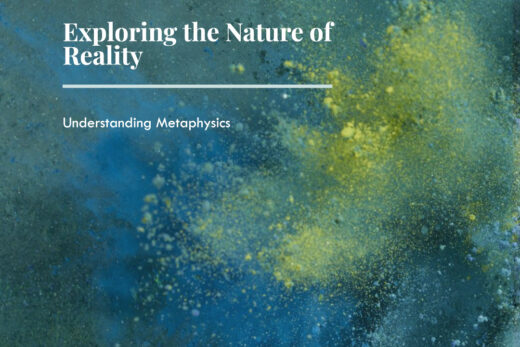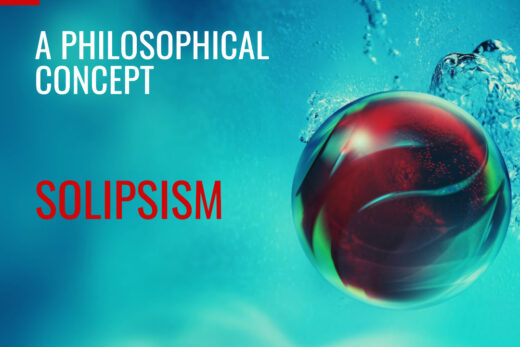Epistemology, derived from Ancient Greek ἐπιστήμη (epistḗmē) ‘knowledge’, and -logy, is a significant subfield of philosophy. It delves into understanding the concept of knowledge – its nature, origin, scope, and more.
Types of Knowledge in Epistemology
Epistemology recognizes two major types of knowledge: propositional and know-how. Propositional knowledge, often signified by phrases like “know that,” is factual and can be conveyed through statements. For example, knowing that Paris is the capital of France. On the other hand, know-how or procedural knowledge, expressed as “know how,” is a practical understanding. For example, knowing how to ride a bike.
Expanding further, some philosophers suggest 4 types of knowledge:
A Priori Knowledge
This is knowledge that is independent of experience. It’s knowledge we have before we interact with the world, often thought of as ‘innate’ or ‘inborn’. It’s based on reason and logic, not on observation or experience. For example, if you know the rules of logic or mathematics, you understand that if “all men are mortal” and “Socrates is a man,” then “Socrates is mortal.” This is a priori knowledge because you don’t need to meet Socrates or witness a man’s mortality to know it’s true.
A Posteriori Knowledge
This is knowledge that comes from experience or empirical evidence. It’s information we gather after experiencing the world. For instance, if you touch a flame and get burned, you learn that fire is hot. This is a posteriori knowledge because you have acquired it through sensory experience.
Empirical Knowledge
Empirical knowledge is similar to a posteriori knowledge as it is also based on experience or observation, but specifically refers to knowledge gained through scientific methods like observation, experimentation, and data analysis. For example, understanding that gravity pulls objects towards the earth’s center is empirical knowledge. It’s derived from repeated observations and experiments conducted over time.
Non-Empirical Knowledge
This type of knowledge doesn’t rely on sensory perception, observation, or experimentation. Instead, it’s based on reasoning, intuition, or revelation. For instance, understanding that every effect has a cause is non-empirical knowledge. It’s not something we’ve observed in every instance; it’s a logical assumption we’ve accepted as part of our understanding of how the world works.
Conditions of Knowledge
The three widely accepted conditions of knowledge in epistemology are: belief, truth, and justification. This is often referred to as the ‘Justified True Belief’ model. For a belief to be knowledge, it must be true, and the person must believe it and have justification for it.
Understanding Epistemological Studies
An epistemological study examines the nature of knowledge, the rationality of belief, and related issues like the philosophical analysis of truth and justification. These studies can be broken down into four core areas of epistemology:
- Analyzing the nature of knowledge and the conditions for a belief to constitute knowledge.
- Identifying potential sources of knowledge, such as perception, reason, memory, and testimony.
- Exploring the structure of a body of knowledge, like the debate over foundational beliefs versus a coherent set of beliefs.
- Addressing philosophical skepticism, which questions the possibility of knowledge.
Epistemologists often employ formal models to shed light on these issues and trace the historical conditions of knowledge’s evolution.
Explaining Epistemology: The “Why” of Knowledge
To explain my understanding of epistemology, let’s use an analogy. Consider knowledge as a building, with each piece of information representing a brick. Epistemology, then, is not the bricks themselves, but the process of inspecting the quality of the bricks, understanding how they hold together, and contemplating the architectural blueprint.
The primary purpose of epistemology is to question and understand “knowledge”. It inquires, “What do people know?”, “What does it mean to say that we know something?”, “What makes justified beliefs justified?”, and “How do we know that we know?” These are not just philosophical musings but vital questions that help shape our perception of reality.
Conclusion: The Value of Epistemology
So, why bother with epistemology? The answer lies in its relevance. It allows us to make sense of what knowledge is, how we acquire it, and how we use it. Moreover, it enables us to discern between justified belief and mere opinion, offering a structured way to approach understanding and belief.
Epistemology is thus not just a subfield of philosophy but a practical tool to navigate the sea of information we encounter daily. Whether we’re aware of it or not, we’re all epistemologists in a way, trying to make sense of the world around us.
Frequently Asked Questions (FAQ)
How does epistemology relate to education?
Epistemology plays a key role in education. It helps educators understand the nature of knowledge and how it can be conveyed, perceived, and understood. This understanding influences teaching methods, learning strategies, and curriculum development.
What are some of the challenges faced in epistemology?
Epistemology grapples with issues such as the infinite regression problem, dealing with skepticism, and defining what constitutes ‘justified belief.’ It also faces the challenge of determining the limits and scope of human knowledge.
Can you briefly explain the concepts of ‘a priori’ and ‘a posteriori’ knowledge?
‘A priori’ knowledge refers to understanding independent of experience or empirical evidence, like mathematical truths. ‘A posteriori’ knowledge, on the other hand, is knowledge derived from experience or observation.
How does epistemology impact our daily life?
While we might not always be aware of it, epistemology influences our everyday decision-making and belief systems. It shapes how we gather information, evaluate claims, and assess the credibility of sources.
What is the relationship between epistemology and other fields of philosophy?
Epistemology intersects with other philosophical fields, such as metaphysics and ethics. It shapes our understanding of reality (metaphysics) and affects our judgments about right and wrong (ethics). It’s an essential pillar of philosophical inquiry.




